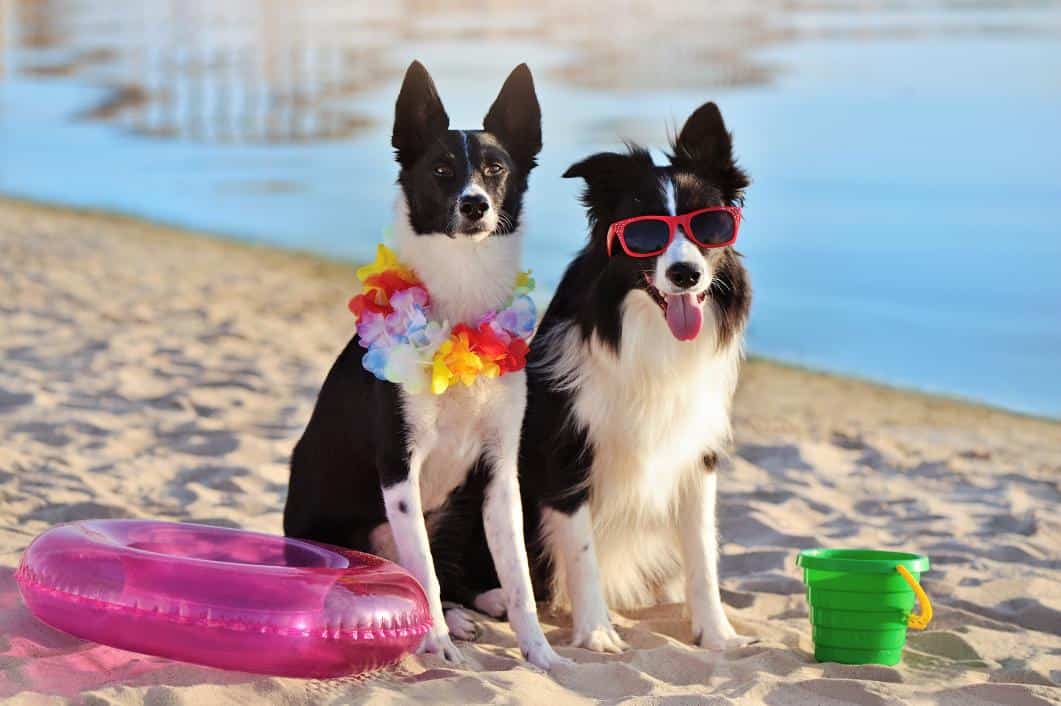Beach Tips to Keep Your Dog Safe

Nothing says summer like a beach trip with your best furry friend. It’s a great way to bond while getting plenty of exercise and socialization. But being near the water isn’t all fun and games. Our team at Crossroads Animal Hospital wants you and your pets to stay safe while enjoying the beautiful beaches of Virginia and beyond. Keep reading for important beach safety tips and other considerations for enjoying the sand and surf this summer.
Know Before You Go
Finding a dog-friendly beach before beginning your adventure is a critical first step. Websites like BringFido can help with your initial search, but it’s important to confirm that the information you find is accurate. Some beaches restrict dogs during specific times or don’t allow dogs due to wildlife concerns or dangerous tides.
These rules apply to all beaches:
- Follow all posted rules and regulations.
- Keep dogs leashed where required.
- All dogs need a collar with up-to-date tags.
- Clean up after your dog.
- Your dog should know basic commands like “come” and “stay.”
Gear Up With a Clean Bill of Health
If it’s been a while since your dog’s last physical examination, a visit to the vet is in order. We will make sure your dog is current on vaccines and parasite control, so the only thing your dog brings home from the beach is a bit of sand between the toes! We can also microchip your dog if you haven’t done so already to help identify your dog if he or she should stray.
What to Pack for the Beach
Be sure to pack the beach bag and car with these canine beach safety essentials:
- A beach tent or umbrella
- Sunscreen made just for pets
- Drinking water and portable bowl
- An absorbent towel for your dog
- A regular leash, long lead, and harness
Canine Beach Safety Tips
The heat, sand, and saltwater pose potential dangers for dogs. Be mindful of the following:
- Sand can get extremely hot, and shells and rocks can make for an uncomfortable walk. Protect your pet’s paws with booties.
- Dehydration and heatstroke are concerns since dogs don’t sweat. Make sure your dog takes frequent breaks under the beach umbrella and drinks plenty of water.
- Salt water is extremely toxic. Play fetch on the beach rather than in the water to prevent your pet from drinking salt water.
- Sand fleas are unaffected by regular parasite control, so steer clear of rainy days, avoid visiting the beach during dusk and dawn, and use pet-safe bug spray.
- Don’t let your dog eat dead fish, clams, crabs, and anything else that washes ashore.
- Give your dog a rinse with fresh water before you head home, and then treat your dog to a warm bath and a firm scrubbing to remove salt, sand, and any fleas that have hitched a ride.
Still have questions about canine beach safety? Contact us at (540) 832-1751. Our team is always here to help.
